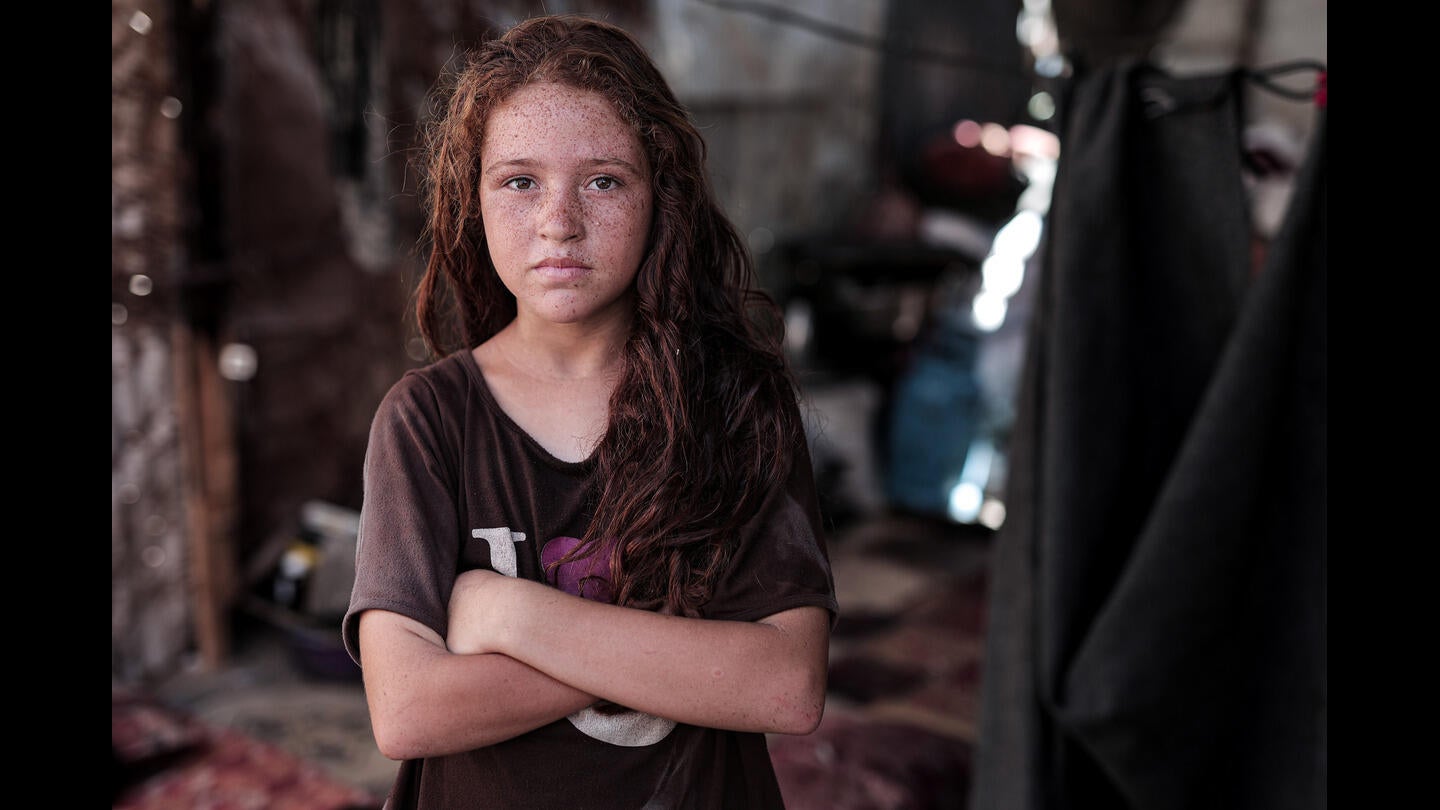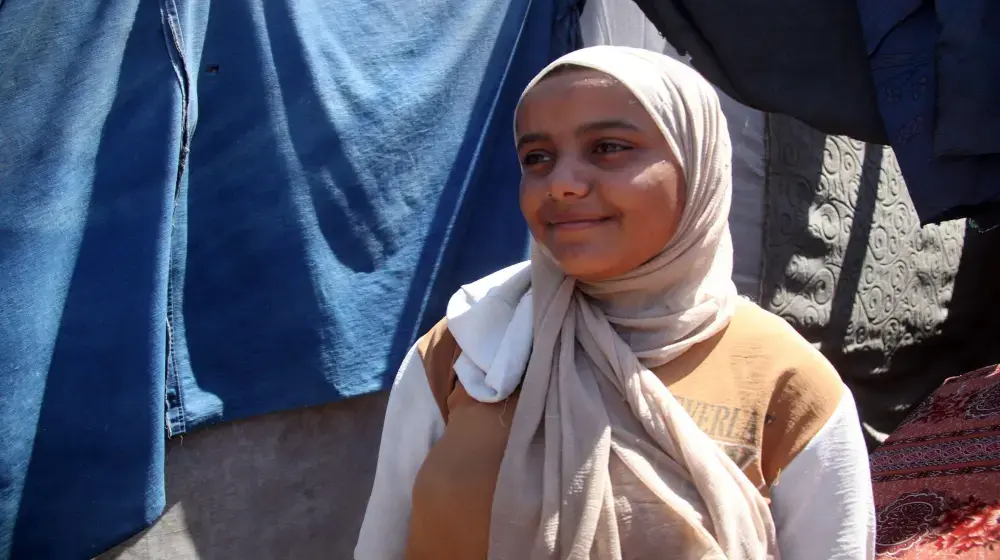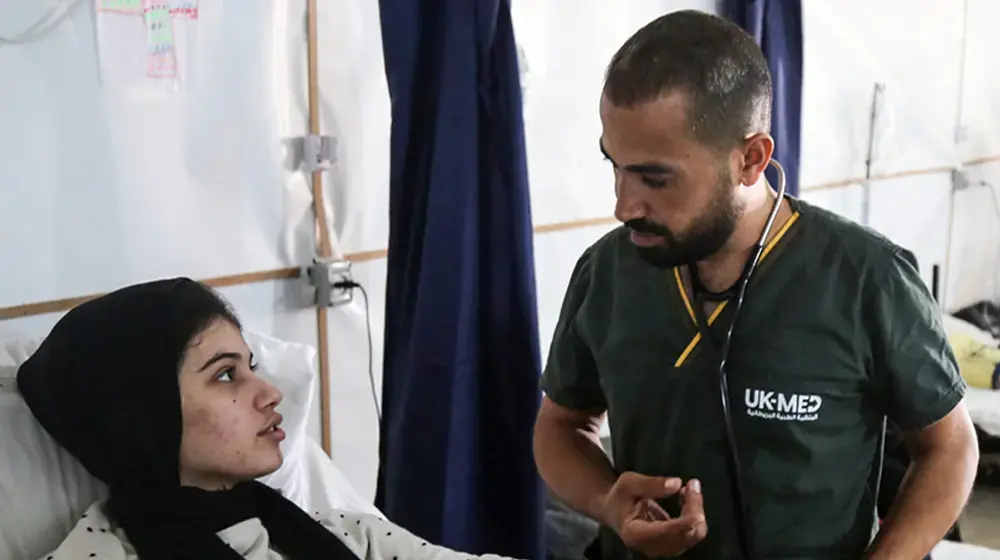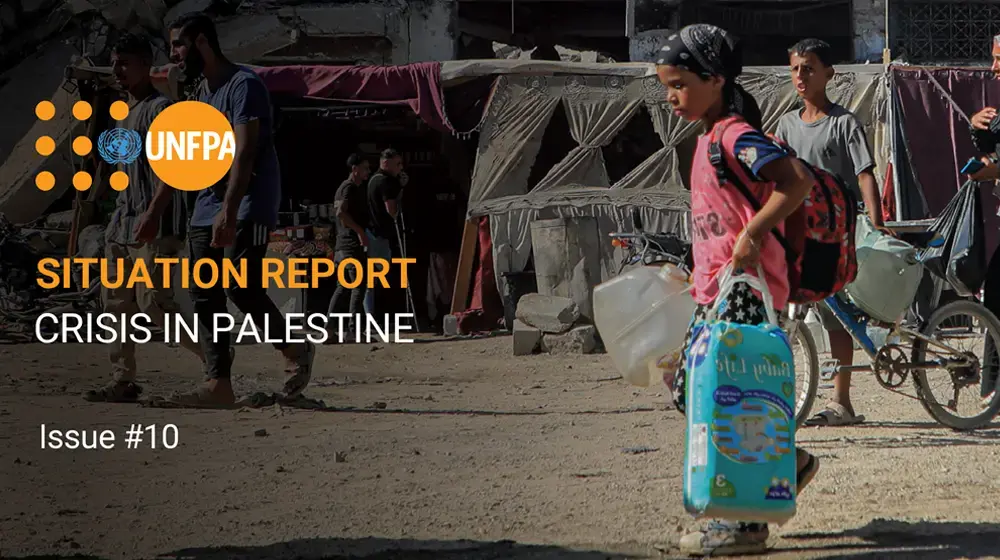GAZA STRIP, Occupied Palestinian Territory – “Our whole life became a tragedy,” said 15-year-old Mariam* after 15 months of war in Gaza.
“The lack of medicine, poor food, contaminated water – and we were displaced from one place to another, living in tents,” she told UNFPA, the United Nations sexual and reproductive health agency.
Mariam is currently living in Gaza city, but her story is one among countless others of young girls displaced across Gaza. The war has devastated communities, forced families from their homes multiple times, and worn down the mental health and well-being of nearly everyone – especially young people like Mariam.
A recent report revealed that since the start of the war more than half of Gaza’s young people feel unsafe, and 91 per cent reported worsening health conditions. Also in Gaza city, 14-year old Fatima* told UNFPA, “We are forced to live in overcrowded tents, with no privacy. The heat is unbearable, and there’s no clean water.”
The near total lack of menstrual products, hygiene facilities and clean water have all heightened the risk of infections, with widespread malnutrition and inadequate access to healthcare exacerbating the impact and duration of sickness and disease.
Gender-based violence and exploitation are also reported to be rising steeply, especially among displaced women and girls in overcrowded shelters and at aid distribution points.
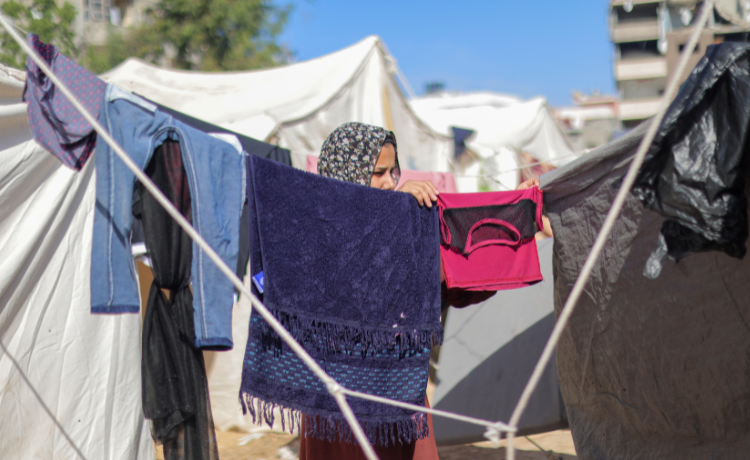
Adolescent girls and women in Gaza face immense challenges, with overcrowded living conditions, limited access to basic needs, and the constant burden of displacement and insecurity. Photo © UNFPA/Media Clinic.
The unseen burden
More than 20 per cent of Gaza’s population are under age 29, many of whom have lost families, friends, homes and their chance at education. “I loved studying and going out, but when the war came my life changed,” said Fatima. “In the tent, the whole day is spent working, cleaning, and preparing food. Everything is exhausting.”
The psychological fallout of the war has led to soaring cases of severe anxiety, depression and post-traumatic stress disorder, the report shows. At just 19, Nour* has lost her entire family to the conflict. “I’m the only survivor,” she told UNFPA. “I went through very difficult and harsh days, with extreme circumstances. I was injured and not allowed to travel for treatment.”
Rana*, 15, was also displaced in the central governorate and recalled the terrifying explosions she heard all around her. “You're sitting there and suddenly there's a bombing next to you, with the cries of children and body parts of people killed.”
Many girls report that their terror is stopping them from sleeping, a situation they are accepting as their new normal. “We were displaced almost nine times and lost family members. There is no safety, and we live in constant fear of losing more,” said 18-year-old Sara*.
“It’s the psychological toll – the constant fear and hopelessness – that is the hardest to bear.”
![Three girls work cooking and cleaning beside an open tent]](https://www.unfpa.org/sites/default/files/inline-images/gazaprogrammes%20%281%29.png)
The need for support
The report also found that nearly three quarters of girls in Gaza cannot access menstrual hygiene products, and 71 per cent report increased pressure to marry before they turn 18, as a means to help their family cope financially. Before the war, Gaza had high literacy and school attendance rates, but with almost all school buildings now demolished or damaged and hundreds of teachers killed, Gaza’s young people face an even steeper uphill struggle to secure the futures they deserve. “I used to dream of building a better future, but the war took away my ambitions,” said 15-year-old Layla*.
Programmes led by UNFPA in partnership with local NGO Save Youth Future Society (SYFS) and the Sharek Youth Forum are vital in addressing these needs. Through psychosocial support and counselling, they offer girls a chance to process their trauma and begin healing. For Layla, they restored a sense of hope. “Through the educational initiatives, I could get back to school and become a peer support to my relatives and children in the displacement camp.”
UNFPA also works with volunteers who have set up temporary educational and life skills learning spaces for young people, and delivers awareness campaigns, adolescent hygiene kits, recreational activities and sport programmes to help them regain a sense of normality. “We have to support each other,” said Mariam.
A glimmer of hope
The news of the ceasefire has brought some welcome relief for the 1 million women and girls who have lived under bombardment for the last 470 days. Fewer than half of Gaza’s 36 hospitals are still functioning, millions have lost homes and loved ones, and most lack the very basics to survive.
In 2025, UNFPA plans to set up multi-purpose youth centres and girls’ tents throughout the Gaza Strip, offering integrated mental health interventions in youth programming, education, and essential resources like menstrual hygiene products, alongside protection against harmful practices, including early marriage.
Prioritizing the recovery, stability, and future well-being of young people in Gaza will be essential to ensure they can rebuild their lives. “My greatest ambition is to go back home and see my friends,” said Layla. “I have started to return to how I was before.”
Names changed for privacy and protection*

